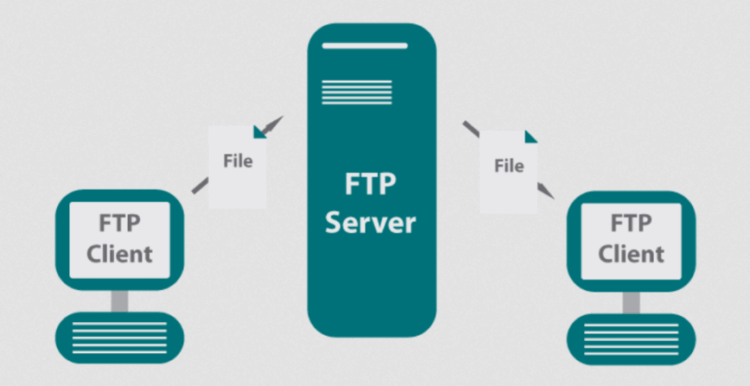Exploring the world of Dedicated server hosting vs VPS: Pros and cons opens up a realm of possibilities for businesses looking to optimize their online presence. By delving into the intricacies of these hosting options, we uncover the advantages and drawbacks that shape the digital landscape.
As we navigate through the nuances of performance, scalability, security, cost, and management, a clearer picture emerges of how businesses can make informed decisions to propel their online ventures forward.
. Some key security features unique to Dedicated Server Hosting include:
Introduction to Dedicated Server Hosting and VPS
Dedicated Server Hosting and VPS are two popular options for businesses looking to host their websites or applications. Each has its own set of advantages and use cases, catering to different needs and requirements.Definition and Key Differences
Dedicated Server Hosting involves renting an entire physical server for exclusive use, providing full control and customization options. On the other hand, VPS (Virtual Private Server) hosting involves dividing a physical server into multiple virtual servers, each with its own resources and operating system.Examples of Businesses or Use Cases
- Dedicated Server Hosting:Large e-commerce websites with high traffic volumes, gaming servers requiring optimal performance, and enterprises needing enhanced security and compliance measures.
- VPS Hosting:Small to medium-sized businesses looking for cost-effective hosting solutions, developers needing scalability for testing environments, and startups with fluctuating resource requirements.
Performance and Resources
When it comes to performance and resource allocation, Dedicated Server Hosting and VPS have distinct differences that cater to different needs and requirements.Performance Capabilities
- Dedicated Server Hosting: With dedicated server hosting, you have the entire physical server at your disposal. This means you have full control over the resources, leading to high performance levels. Dedicated servers are ideal for resource-intensive applications that require maximum processing power and storage capacity.
- VPS: Virtual Private Servers, on the other hand, offer a portion of a physical server that is divided into multiple virtual servers. While VPS can provide good performance for most applications, it may not match the performance levels of dedicated servers for highly demanding tasks.
Resource Allocation
- Dedicated Server Hosting: Resources in dedicated server hosting are solely dedicated to your use. This means you can allocate resources as needed without sharing with other users. You have full access to the CPU, RAM, storage, and bandwidth of the server.
- VPS: In VPS hosting, resources are shared among multiple virtual servers on the same physical machine. While you have dedicated resources allocated to your VPS, they are limited by the overall resources of the physical server. Resource allocation can be adjusted based on your requirements but is still shared with other VPS instances.
Resource-Intensive Tasks
- Dedicated Server Hosting: Resource-intensive tasks such as running complex databases, hosting multiple high-traffic websites, or processing large amounts of data are well-suited for dedicated server hosting. These tasks require substantial processing power and storage capabilities, which dedicated servers can provide efficiently.
- VPS: Virtual Private Servers are suitable for tasks like hosting medium-traffic websites, running applications that require moderate resources, or testing environments. While VPS can handle resource-intensive tasks to some extent, they may not perform as well as dedicated servers for extremely demanding workloads.
Scalability and Customization
When comparing Dedicated Server Hosting and VPS, it's essential to consider the scalability and customization options each option provides. These factors play a crucial role in determining the flexibility of your hosting solution.Scalability with Dedicated Server Hosting
Dedicated servers offer high scalability, allowing you to easily upgrade your resources as your business grows. You can increase CPU, RAM, storage, and bandwidth according to your requirements. This flexibility ensures that your server can handle increased traffic and workload without any performance issues.Scalability with VPS
VPS also provides scalability, but to a certain extent. While you can upgrade resources like CPU and RAM, you are limited by the physical server's capacity. If your VPS reaches its limits, you may need to migrate to a higher plan or consider a Dedicated Server for more scalability options.Customization Level
Dedicated Server Hosting offers a higher level of customization compared to VPS. With a dedicated server, you have full control over hardware configurations, software installations, and security settings. This level of customization allows you to tailor the server environment to meet your specific needs and preferences.Impact on Flexibility
The scalability and customization options available with Dedicated Server Hosting provide a higher level of flexibility compared to VPS. Businesses that require extensive control over their server environment, along with the ability to scale resources seamlessly, may find Dedicated Server Hosting more suitable. On the other hand, VPS is a cost-effective solution for businesses with moderate resource requirements and a limited budget.Security Features
When it comes to hosting services like Dedicated Server Hosting and VPS, security is a critical aspect to consider. Both options offer various security features to protect your data and applications from potential threats. Let's delve into the security measures in place for each hosting type and compare the vulnerability risks associated with them.Dedicated Server Hosting Security Features
Dedicated Server Hosting is known for providing a high level of security due to its isolated environment- Physical security measures such as biometric access controls and surveillance systems to prevent unauthorized access to the server hardware.
- Firewall protection to monitor and filter incoming and outgoing network traffic, safeguarding the server from malicious attacks.
- Regular security audits and updates to ensure the server's software and applications are up to date and protected against known vulnerabilities.
- DDoS protection to mitigate and prevent Distributed Denial of Service attacks that can disrupt the server's availability.
VPS Security Features
While VPS also offers robust security features, it may have a slightly higher vulnerability risk compared to Dedicated Server Hosting due to shared resources. Some security features unique to VPS hosting include:- Virtualization technology to create isolated virtual environments for each user, enhancing security by preventing one user from impacting another.
- Secure hypervisor layer to ensure the isolation and protection of each virtual server on the physical hardware.
- Snapshot backups to easily restore the VPS to a previous state in case of data loss or security breaches.
- Access control mechanisms to restrict user permissions and prevent unauthorized access to sensitive data or server settings.
Cost Comparison
When it comes to choosing between Dedicated Server Hosting and VPS, cost is a crucial factor that businesses need to consider. The pricing structures for each option can vary significantly, impacting the overall budget and financial feasibility. Let's delve into the cost factors involved in opting for Dedicated Server Hosting versus VPS and how they influence decision-making for businesses.Dedicated Server Hosting
With Dedicated Server Hosting, you have the entire physical server dedicated solely to your website or application. This exclusive use of resources comes at a higher cost compared to VPS due to the premium nature of the service.- Monthly Rental: The pricing for Dedicated Servers usually involves a fixed monthly rental fee, which can range from a few hundred to thousands of dollars, depending on the specifications and resources provided.
- Additional Costs: Businesses may incur extra charges for add-on services, such as managed hosting, data backup, and security features, which can further increase the overall cost.
VPS (Virtual Private Server)
VPS, on the other hand, offers a more cost-effective solution by dividing a physical server into multiple virtual servers, each operating independently. This shared environment allows for cost savings compared to Dedicated Servers.- Pricing Tiers: VPS hosting providers typically offer different pricing tiers based on the allocated resources, such as CPU cores, RAM, storage space, and bandwidth. Businesses can choose a plan that aligns with their budget and performance requirements.
- Scalability Options: VPS plans often come with scalable options, allowing businesses to adjust resources as needed, which can impact the overall cost based on usage.
Management and Support
When it comes to managing and supporting Dedicated Server Hosting and VPS, there are key differences that can impact your overall experience with each option. Let's delve into the details below.Level of Management Required
- Dedicated Server Hosting: With a dedicated server, you are responsible for managing all aspects of the server, including software updates, security patches, and configurations. This gives you full control but requires a higher level of technical expertise.
- VPS: VPS hosting providers often offer managed services where they take care of routine maintenance tasks like updates and security patches. This can be beneficial for those who don't have the technical know-how or time to manage a server independently.
Support Services
- Dedicated Server Hosting: Providers may offer varying levels of support, ranging from basic hardware maintenance to full management services. It's essential to check what support options are available before choosing a dedicated server provider.
- VPS: VPS hosting providers typically offer 24/7 support to assist with any technical issues or queries. This can be valuable for ensuring your server runs smoothly and addressing any issues promptly.
Managing and Troubleshooting
- When managing a dedicated server, you need to be proactive in monitoring server performance, security, and updates to prevent any downtime. Troubleshooting issues may require in-depth technical knowledge or the assistance of a dedicated server provider.
- With VPS hosting, providers often have monitoring tools in place to help you identify and address issues quickly. It's essential to communicate effectively with the support team if you encounter any challenges to ensure swift resolution.










